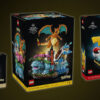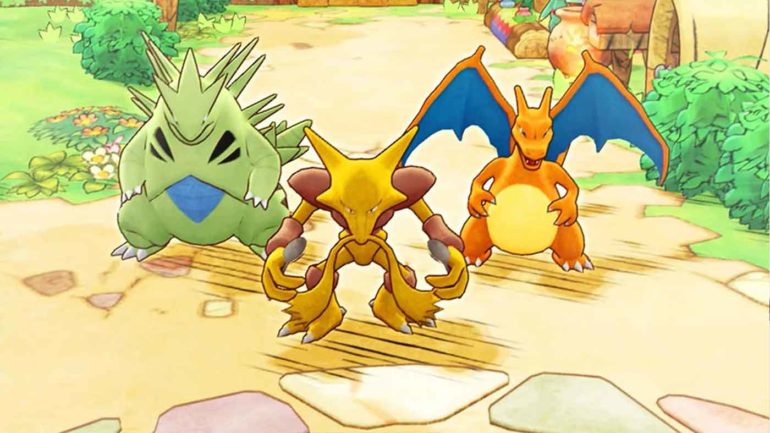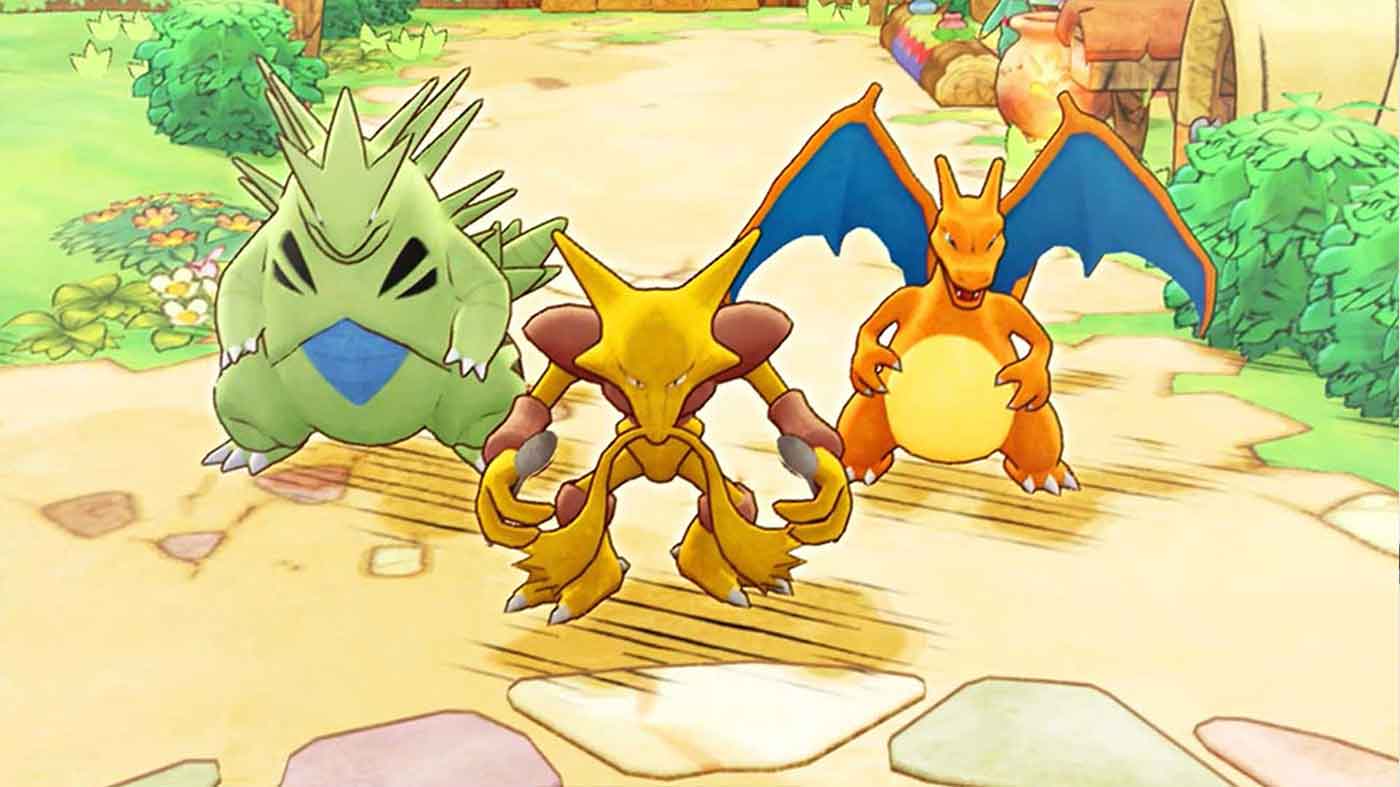Press Start may receive a commission when you buy from links on our site at no extra cost to you.
If you’ve missed a title from Nintendo’s extensive back-catalogue of games, chances are you may not have to wait too long to see it return in the form of a remaster or remake on the Nintendo Switch. Pokemon Mystery Dungeon: Rescue Team DX was unveiled as a surprise announcement earlier this year, as an amalgamation of the games Red Rescue Team and Blue Rescue Team originating on the Game Boy Advance and Nintendo DS respectively in 2006. But this game is more than just a new coat of paint on an old title – reworked original soundtracks compliment the overhauled art style making what was once a pixelated outing on the Game Boy Advance feel so much more wholesome.
Opening the game by answering mysterious questions, you are compared to a Pokemon based on your responses which becomes your primary character. You don’t have to BE that Pokemon, but it’s more fun to see what the game gives you; apparently I’m naïve, so I was designated as a Totodile. From the remaining characters (sixteen in total) you pick a partner who becomes your best friend and guide throughout the game.
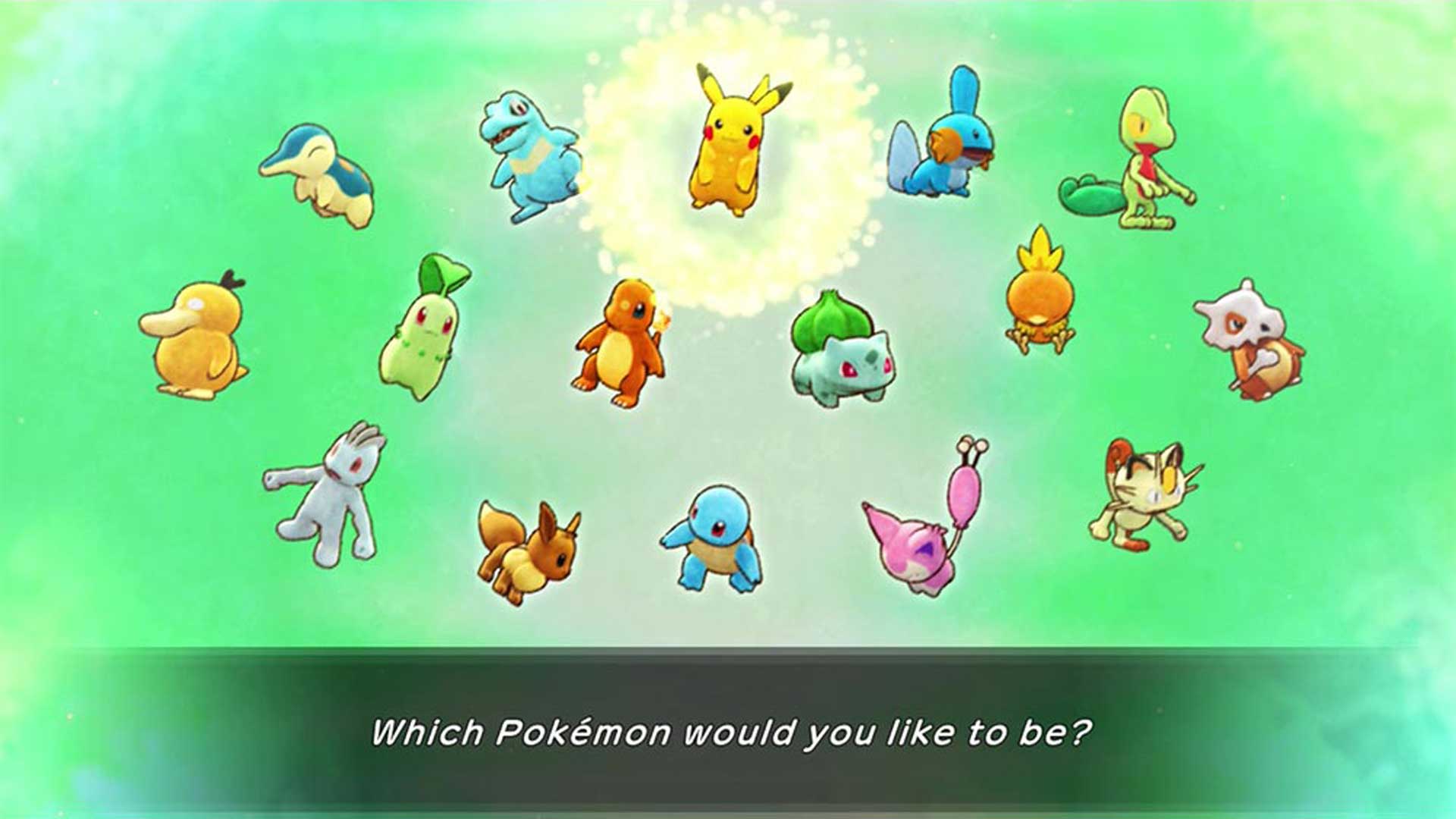
You awaken disoriented and clueless in the Pokemon world, being found by your partner (Eevee in my case) and diving straight into a rescue mission to save a young Caterpie from a dungeon. As your journey unfolds towards finding out how your character was turned into a Pokemon, you’ll form a Rescue Team to save and help your fellow monsters. This includes battling other Pokemon and recruiting them to your cause, and facing off against the fiendish members of Team Meanies who are in it for the cash. Along the way you’ll come across strong and legendary monsters, and also uncover why the Pokemon World is being afflicted with a series of unusual natural disasters.
The gameplay of Rescue Team DX follows a cyclical pattern – each dungeon crawl represents a day in the world. Your character wakes up, is greeted by your partner, then you check your mail or the Bulletin Board for rescue missions. You’ll be prompted to complete the main story mission continuously, however you have the option to choose sidequests or follow the main story. The village is where you go to train your Pokemon, purchase items or bank your funds, and set up new camps where new recruit Pokemon can go when they join your team. Once you’ve selected a dungeon mission, you pick your team loadout and get ready to go.
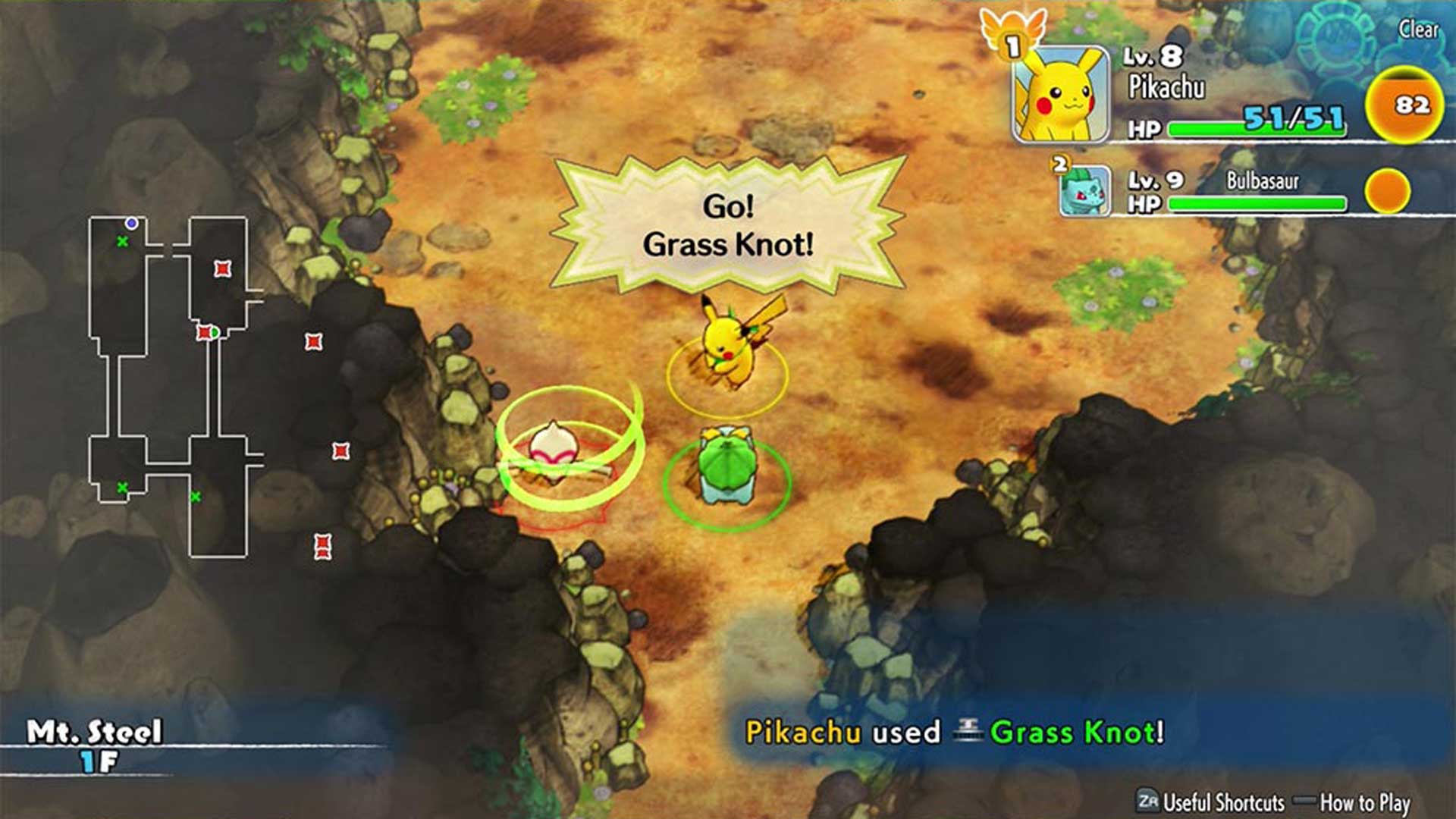
Playing as a combination roguelike and Pokemon game, your character moves through the world tile by tile to reach their destination. Your movements are limited by a hunger meter which depletes over time, but can be replenished with items you collect. As you encounter wild Pokemon within the dungeons you can tactically attack from a distance or up close depending on your moveset; just like in the mainline games, each Pokemon has four available moves with varying impacts. These moves also burn through PP which can also be replenished, but it slowly teaches you balance by understanding your team’s limitations. If your team happens to get lost in a dungeon, you have the option of sending out a request to friends to save them, or losing all of your items and money and going back to the town.
Battling Pokemon is relatively simple, either by attacking with A or selecting a move with the left trigger and corresponding button. When you defeat an enemy, sometimes the Pokemon will choose to join your team, which not only boosts your team from three members to more, but gives you the opportunity to recruit them as a member of your Rescue Team provided you have a camp for them.
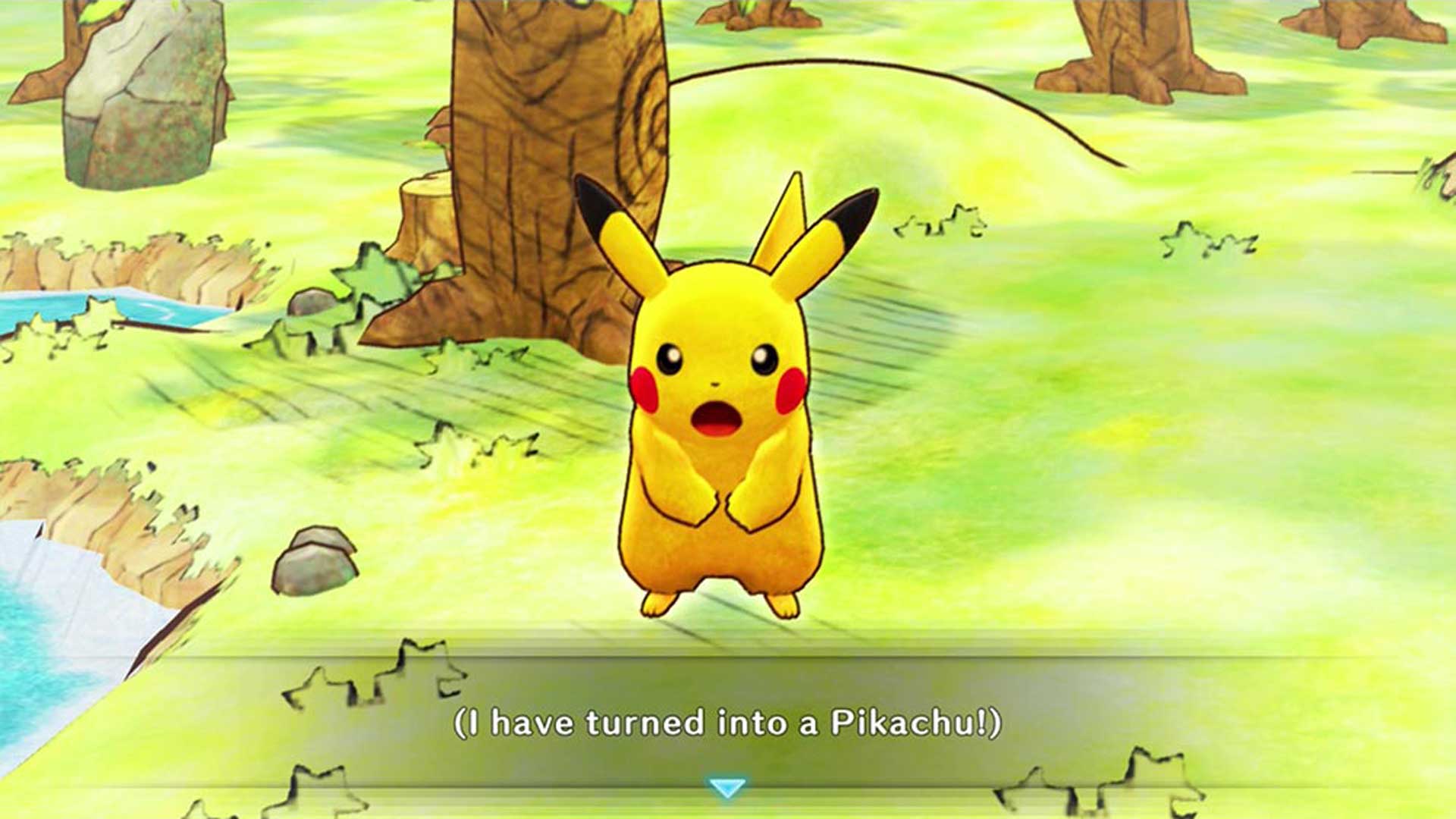
Wandering through dungeons and applying the known type matchups is fun and a welcome change to the standard offering of the Pokemon series, however after a while it does begin to become repetitive, and the game lends itself better to shorter bursts of gameplay as opposed to longer sessions. Despite being procedurally generated, dungeons begin to feel quite same-y and monotonous, which is only further hampered by the repetitive updated music which plays over the top. It is also telling that at certain points this game definitely feels like a remastered port; controls can be a little finnicky, cutscenes that serve no purpose yet are unskippable (how many times do I need to see Pelipper deliver the mail?) and general gameplay quirks that feel carried over from a relatively old title.

